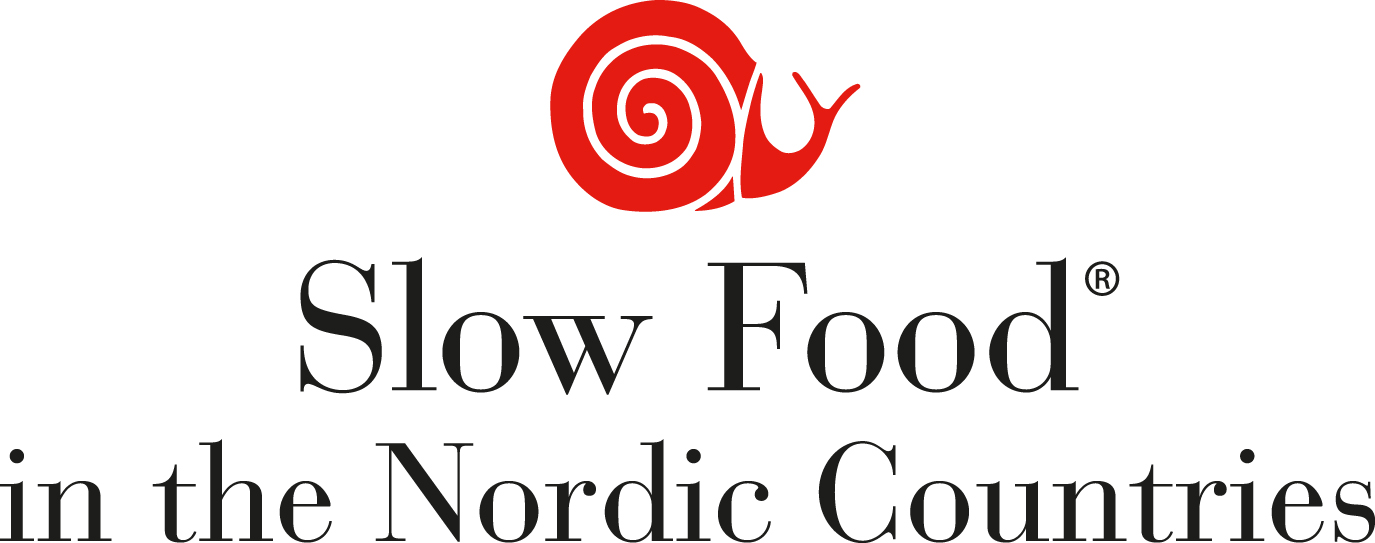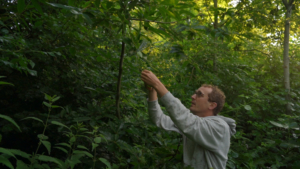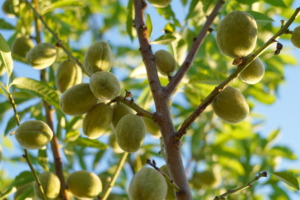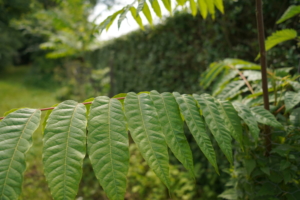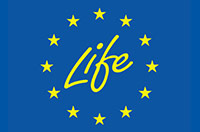Sessions – Talks & Panels take place in the conference room at Stora Skuggans Värdshus. The sessions are open to all guests curious of taking active part in these interesting activities.
Seats are limited to 40 persons. Seats are reserved on a first come, first serve basis. No reservations are accepted.
OBS! Friday’s workshop on Nordic Terroir and Geographical Origin and the FILM CORNER take place in the conference room of Kungliga Djurgårdsförvaltningen. The building is situated next to Stora Skuggans Värdshus.
Thursday 1 September
Lecture & workshop – “What are heritage crops and how do they taste?”
Heritage crops have many different names. They can be called cultural crops, cultural varieties, country varieties or heritage crops. There is no precise definition of heritage crops, but it often denotes original varieties from early agriculture that have not undergone modern breeding. Karin Wendin and Karin Gerhardt from SLU will hold a lecture/workshop on the topic.
When? Thursday 1 September at 12.30-13.30
Where? The lecture will be held in the conference room at Stora Skuggans Värdshus
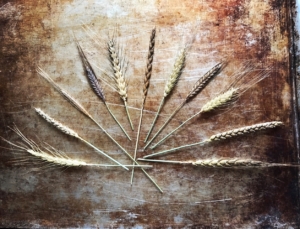
Talk – Food Tourism by Visit Sweden
Bianca Brandon-Cox, specialist within food tourism at Visit Sweden, will in a 45 minute session talk about Sweden’s position as a sustainable destination, about the conscious visitors needs and expectations and how to best reach the target group with cutting edge communication.
Bianca will also present selected parts of Visit Sweden’s new trend report which will cover examples of trends from three focus areas; nature, culture and food. The report will be made publicly available in autumn 2022. Lastly, Bianca will make sure to share her best tops from the “Step by step guide” to succeed within food tourism in Sweden.
When? Thursday 1 September at 14.00-15.00
Where? The talk will be in the main conference room at Stora Skuggans Värdshus.
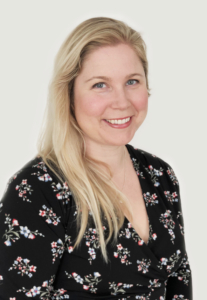
Small-scale food production based on traditional knowledge – what challenges do we see?
Since 2021, the Sámi Parliament has been tasked by the government to be the thematic focal point for Articles 8j and 10c of the UN Convention on Biological Diversity (CBD). The articles deal with traditional knowledge and sustainable customary practices, and the Sami Parliament’s mission includes both árbediehtu, Sami knowledge tradition and other knowledge traditions in Sweden.
The panel raises issues that concern food business, which common denominators and needs exist, regardless of whether you work with fishing, reindeer husbandry or livestock farming. What can decision-makers and authorities do to make it easier for companies?
When? Thursday 1 September at 15.30-16.30
Where? The talk will be in the main conference room at Stora Skuggans Värdshus.
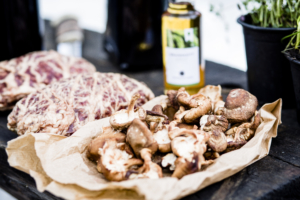
Friday 2 September
Future Food Tourism – Slow, Sustainable and Regenerative? (ENG)
Meet Jens Heed on Friday 2nd of September at this years #TerraMadreNordic. Jens will host a session discussing the future of food tourism and the relationship between the concepts of Slow Food Travel, Sustainable Food Tourism and Regenerative Tourism.
You will get the chance to hear the views of Nordic entrepreneurs and experts discuss what needs to be done to prepare for a better future through food travel. Amongst the participants you will meet Pål Drønen, working with the Slow Food Travel concept and board member of Slow Food in the Nordic Countries.
About Jens; he is an advisor and change manager for the transformation of the food system. With a background in national food policy, Jens has been working for Visit Sweden with a national project to develop Sweden into a sustainable food and beverage destination. Now he is working on ideas to use gastronomy as a tool to develop society and culture in a positive direction.
The session “Future Food Tourism – Slow, Sustainable and Regenerative?” will take place on Friday 2 Sept at 12-13.30 in the main conference room.
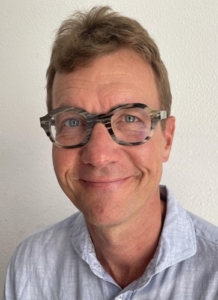
Workshop – Nordic Terroir and Origin (ENG)
Products labelled with origin offers economic resiliens for the producer and supports the local biodiversity and are drivers of a regenerative and resilient food system. From the consumer’s perspective products labelled with origin also offer a concept of trust. In this workshop we will be inspired by good examples and discuss how to increase resilience regionally and nationally in the Nordic countries through information and labelling of terroir and origin.
The workshop is moderated by Marjo Särkkä, who works as a researcher at the University of Helsinki/Ruralia Institute. Her specific interests deal with the geographic indication and origin of food, food reputation and concept of trust. She is member of the board of PDOs/PGIs and TSGs in the Ministry of Agriculture and Forestry of Finland.
The workshop takes place on Friday 2 September at 12-13.30 in the KDF conference room.
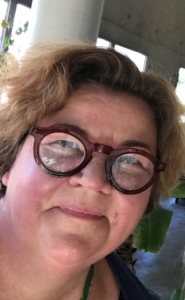
Sustainable choices for direct trade, market channels and logistics for small scale producers (ENG)
The alternatives for small scale artisanal producers to find new market channels and logistics solutions are today many more than just five years ago. From the renewal or awakening of the physical markets to the digital platform solutions offering as well marketing, trade and logistics, it is now easier to access the market and create shorter and more sustainable supply chains.
During this session we will listen to inspirational examples from the Nordic countries and regions on how everyday life with many choices of market channels can offer more sustainable solutions and closer contact with the consumer. A panel discussion will highlight the different market channels and the different options they are offering to both the food producer and the consumer. Questions like Who is driving the demand? How does it affect the range of products offered? Which choices are to be made by the food producers? How to select the “right” market channels and solutions? And the future of both direct and indirect market channels will be discussed.
Moderated by: Jannie S. Vestergaard, SenseOfNordicFood/Slow Food Denmark network/Slow Food in the Nordic Countries
The session takes place on Friday 2 September at 14-15.30 in the Main Conference Room.
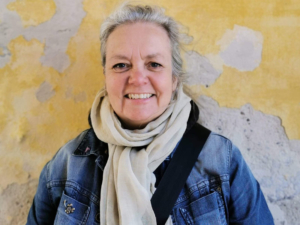
MAIN SESSION: Regenerative and resilient food systems (ENG)
Friday’s main session will address the key topics of Terra Madre Nordic. The session starts out with an inspirational talk on examples of regenerative and resilient food systems – what are they and how do they work? Discussions will highlight different perspectives, e.g. from the more philosophical ones on the impact on our planet changing to more regenerative approaches as well as the more hands-on work a regenerative farmer applies to improve soil health.
The session will end in a Call to Action on how we can act together to change our food systems.
The session is moderated by Line Gordon who is the Curt Bergfors professor in Sustainability Science with a focus on sustainable food systems at Stockholm University. She is also the director of Stockholm Resilience Centre. Jannie Vestergaard, Slow Food in the Nordic Countries will be co-moderating.
About Line Gordon: As a researcher, Gordon is particularly interested in how intentional and unintentional actions in one place can influence systemic change elsewhere. In her research she is particularly interested in how management of water and food can contribute to sustainable and resilient futures. In her research she integrates insights from resilience thinking, land use change, food systems, hydrology, and social-ecological systems. She has worked with small scale farmers in Africa, global models of land-use and rainfall interactions, and culinary innovators in search for solutions to the current sustainability crisis.She is on the board of directors of the EAT Foundation, a science-based global platform for food system transformation. One of her key interests in terms of food system change is related to aspirational change, especially in the Nordic region.
Friday’s main session takes place at 16-18 in the Main Conference Room.
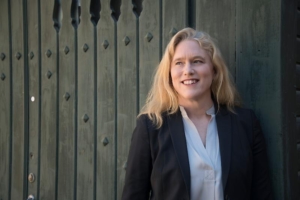
The Terra Madre Nordic Manifesto 2022-2024
The Terra Madre Nordic Manifesto was written during the first edition of the Terra Madre Nordic, held in Copenhagen, Denmark in April 2018. The manifesto is the guide for all Slow Food members and communities to be inspired of and follow. In this session we update the manifesto together and decide upon the Call to Action for the period to come. All in line with the work carried out in our global Slow Food network in more than 160 countries.
You can read the Terra Madre Nordic Manifesto 2018 here
Come and join this important activity for Slow Food in the Nordic countries taking place at 19.15-20 in the Taste Workshop tent.
DINNER for all friends of Slow Food in the Nordic Countries! The Stora Skuggans Värdshus Restaurant is open until 22, so let’s take this oportunity and celebrate our Slow Food Nordic Manifesto and Terra Madre Nordic together! We have pre-booked 20 seats in the restaurant (more seats available though). Reserve your seat – first come, first serve – by filling in the form!
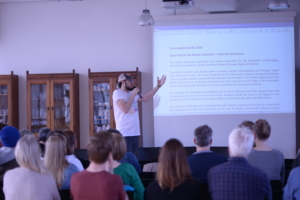
THE FILM CORNER: Films on regenerative and resilient food systems (ENG)
The movies will be shown in the KDF Conference Room
14-15.45 The Bountiful Land (Iceland, 2019, 97 min)
14-14.10 The documentary is presented by the film maker Ásdis Thoroddsen
The documentary is about the Icelandic food tradition and the changes that have taken place in the diet of Icelanders. The story is told with the help of the late Elín Methúsalemsdóttir and her family. Elín sat as a child at the stone hearth of her mother in a turf farm, where she later took over as the woman of the house. In the sixties she moved into a modern house next to the old one. Later her daughter took her place and her grandson is now preparing to take over as farmer. The interview with Elín takes us TO places in Iceland where we visit food producers and food experts of various kinds.
By Ásdís Thoroddsen, www.gjola.is
The documentary is in Icelandic with English subtitles

16-16.40 The forest garden at Rydeholm, an interview with farmer Anders Lindén (Sweden, 2022, 38 min.)
16.-16.10 The documentary is presented by Christina Schaffer, the Swedish delegate in the European Agroforestry Organisation 2022. Christina is a scientist at the Swedish Agricultural University and her research is based on agroforestry systems in Sweden. She is also a teacher at Stockholm University. Christina combines theory, practices, networking and other dissemination of knowledge in her work. Christina is also an active member of the association Agroforestry Sverige.
The Forest Garden at Rydeholm farm appears like a towering island of soil health and biodiversity in a sea of monocultures: cereals, oilseed rape and sugar beets on the Scandinavian Söderslätt. The main tree crops here are sweet chestnut (Castaneva sativa), walnut (Juglans regia), hazelnut (Corylus), but also korean pine (Pinus koraiensis), almonds (Prunus dulcis), ginkgo (Ginkgo biloba) and araucaria (Araucaria araucana). Biodiversity, ecosystem services equivalent to wild, forest-like environments and regeneration have been set here as equal goals with the food production. The long-term vision is a replacement of the annual crops with tree crops; sweet chestnut and araucaria (which produces seeds) as replacements for cereals. Hazelnut and walnut as replacements for vegetable oil. The film is based on interviews with Anders Lindén, the sixth generation on the farm and one of the pioneers of the Swedish agroforestry movement. Why agroforestry? Food production have to take the increasing lack of natural resources – water, living soils and fossil energy, into account. Agroforestry systems have been shown to be of extreme benefit for improving the resilience in agricultural systems.
By Maja Lindström Kling
The documentary is in Swedish with English subtitles
Saturday 2 September
General Assembly Slow Food in the Nordic countries
Slow Food in the Nordic Countries was established as an umbrella organisation for the Nordic convivia and communities in 2019. It is a common association embracing the Nordic Slow Food communities and networks. Slow Food in the Nordic countries is together with Eldrimner also the project owners of Terra Madre Nordic 2022. With only an interim board since the founding it is now time to elect the first board of the association!
The good news is also, that we now know that there will be a Terra Madre Nordic in 2024 – the announcement will take place after the official part of the general assembly is over.
Come join the general assembly of Slow food in the Nordic countries. You can read more about the meeting and the election, statutes etc. here
The General Assembly takes place 10-11.30 in the Main Conference Room
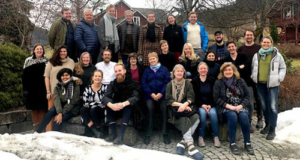
MAIN SESSION: Good proteins (ENG)
Saturday’s main session will embrace all kinds of proteins, as long as they are good for the planet, which is key to more regenerative and resilient food systems. Aiming at a holistic approach, the session focuses both on plant based, animal proteins, marine proteins etc. The session is moderated by journalist Dan Saladino who will give a short inspirational talk on the subject. Short introductions to different aspects, such as the risks of deregulation of the new GMO techniques will be followed by panel discussions e.g. on the well known phrase introduced in Sweden already 10 years ago: “Eat less but better meat”. Another example is the discussions on how for consumers to choose amongst the jungle of innovative but somewhat highly processed food products we today find on the market – if they want to eat good, clean and fair?
The session will end in a Call to Action on how we can act together to change our food systems.
About the moderator: Dan Saladino is a food journalist and presenter of BBC Radio 4’s The Food Programme. He honed his journalistic skills on Radio 4’s investigative series Face the Facts before specialising in food and farming stories more than a decade ago. Dan is listed in the ‘Progress 1000: The Evening Standard’s Most Influential People in Food and Drink’, The Telegraph’s Food Power List and he is the recipient of a James Beard Awards (America’s most high-profile award for food journalism). He has won multiple awards for his radio work, including his efforts to document the loss of biodiversity around the world, in which he has travelled through Europe, Africa, Asia and the Americas recording the world’s most endangered foods and the disappearance of traditional and indigenous food cultures.
His first book, Eating to Extinction: The World’s Most Endangered Foods and Why We Need to Save Them an epic journey into the history, culture and future of food, published by Jonathan Cape, has won multiple awards.
Saturday’s main session will take place at 12-14 in the Main Conference Room.
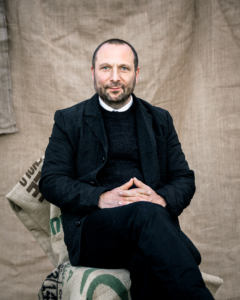
Talk – Regenerative farming for dummies (ENG)
What is regenerative farming? Come and ask all the questions you have about what regenerative farming is and how it helps our planet and our food systems. Everything from soil health and photosynthesis to practical farming and the produce. Regenerative farmers will answer the questions.
Ask questions and participate in the dialogue about regenerative farming taking place Saturday 3 September at 14.30-15.30 in the Taste Workshop tent.
